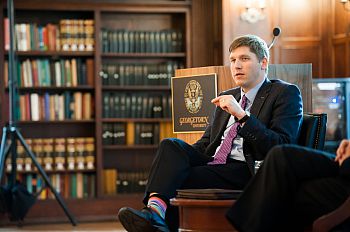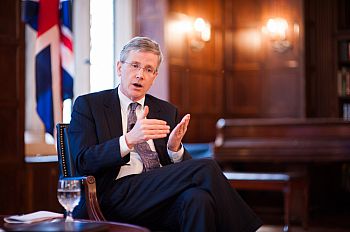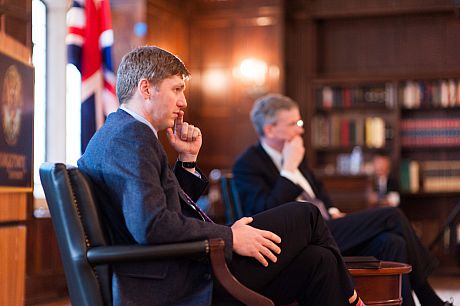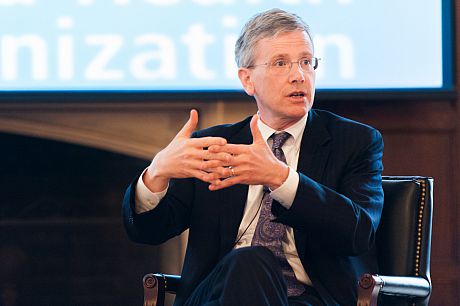 Professor Stefan Elbe (University of Sussex)
Professor Stefan Elbe (University of Sussex)
Organized as part of a strategic initiative between the University of Sussex and Georgetown University, this workshop aims to explore the technical, legal, economic and political aspects of international vaccine sharing, with a particular emphasis on global influenza pandemics. The one-day workshop will cover aspects of vaccine sharing and distribution with a view towards identifying potential collaborative research themes.
In the event of a pandemic, vaccination is considered the best way to prevent infection and save lives. Diseases transverse national borders, so increasing the capacity of each country to produce and implement influenza vaccines may help reduce the spread of the influenza virus and global pandemic. However, the global capacity for pandemic vaccine production is limited and not every country has the technical or financial capacity to manufacture vaccines. During the 2009 H5N1 pandemic, the U.S. government received a number of international requests for vaccines, and donations were made to the WHO for global distribution. However, because it is not possible for one country to provide the global requirements for pandemic vaccines, the concept of a shared global pool of vaccines, which is distributed and shared in an equitable, fair and transparent manner is being explored as a potential way forward.
The concept of sharing pandemic vaccines comes with a number of advantages to global supply: a global equivalent of high-quality, safe, pure, potent and efficacious vaccines, regardless of origin of manufacture. The time and financial costs saved would be significant, as would be the effect of lowering the financial barriers to entry for all market participants. With harmonization, manufacturers could produce one pandemic vaccine for multiple markets, without delaying production for reasons that do not affect the quality, safety, or efficacy of the vaccine. Shared regulatory processes would eliminate duplicative clinical trial testing in order to satisfy different regulatory systems and manufacturers would not have to submit different applications for the same product to different regulatory agencies. Because clinical trials are expensive and involve substantial time commitments, eliminating duplicative testing is both time and cost effective and preclinical testing carried out in animals would be streamlined to eliminate unnecessary duplication. Such sharing requires meeting of vaccine manufacturers, national licensing agencies, government representatives and harmonizing regulatory requirements through a transparent, inclusive and accelerated process, which would in turn facilitate global vaccine access.
 Professor John Monahan (Georgetown University)
Professor John Monahan (Georgetown University)
A number of initiatives are already underway to address the sharing of vaccines in the event of a pandemic, such as the Global Health Security Initiative (GHSI). However, a number of challenges remain. Whilst a new generation of influenza vaccine with universal applicability may potentially be feasible, many technical, regulatory, and logistical obstacles exist. How will a vaccine be distributed and does adequate infrastructure exist for distribution? Who will fund these mechanisms? How will distribution be coordinated and who will govern the stockpiling of vaccines? Who ensures that delivery is safe and effective in a pandemic situation, when public health delivery systems may not be functioning effectively? Vaccine patenting, funding, licensing, indemnity, and protection are just a few issues posing serious barriers to capacity building. Global regulatory harmonization could streamline development and expand production capacity, but this will rely on countries re-evaluating their current regulations and policies. On the international stage, political commitment and transparency are paramount to the success of vaccine sharing. We have witnessed long and challenging diplomatic disputes in the past concerning the sharing of H5N1 virus samples, prompted by intellectual property issues and concerns about inequitable access to medicines. Previous experiences demonstrate the highly politicised nature of this issue.
 Professor Stefan Elbe (University of Sussex) and Professor John Monahan
Professor Stefan Elbe (University of Sussex) and Professor John Monahan
(Georgetown University)
 Professor John Monahan (Georgetown University)
Professor John Monahan (Georgetown University)


